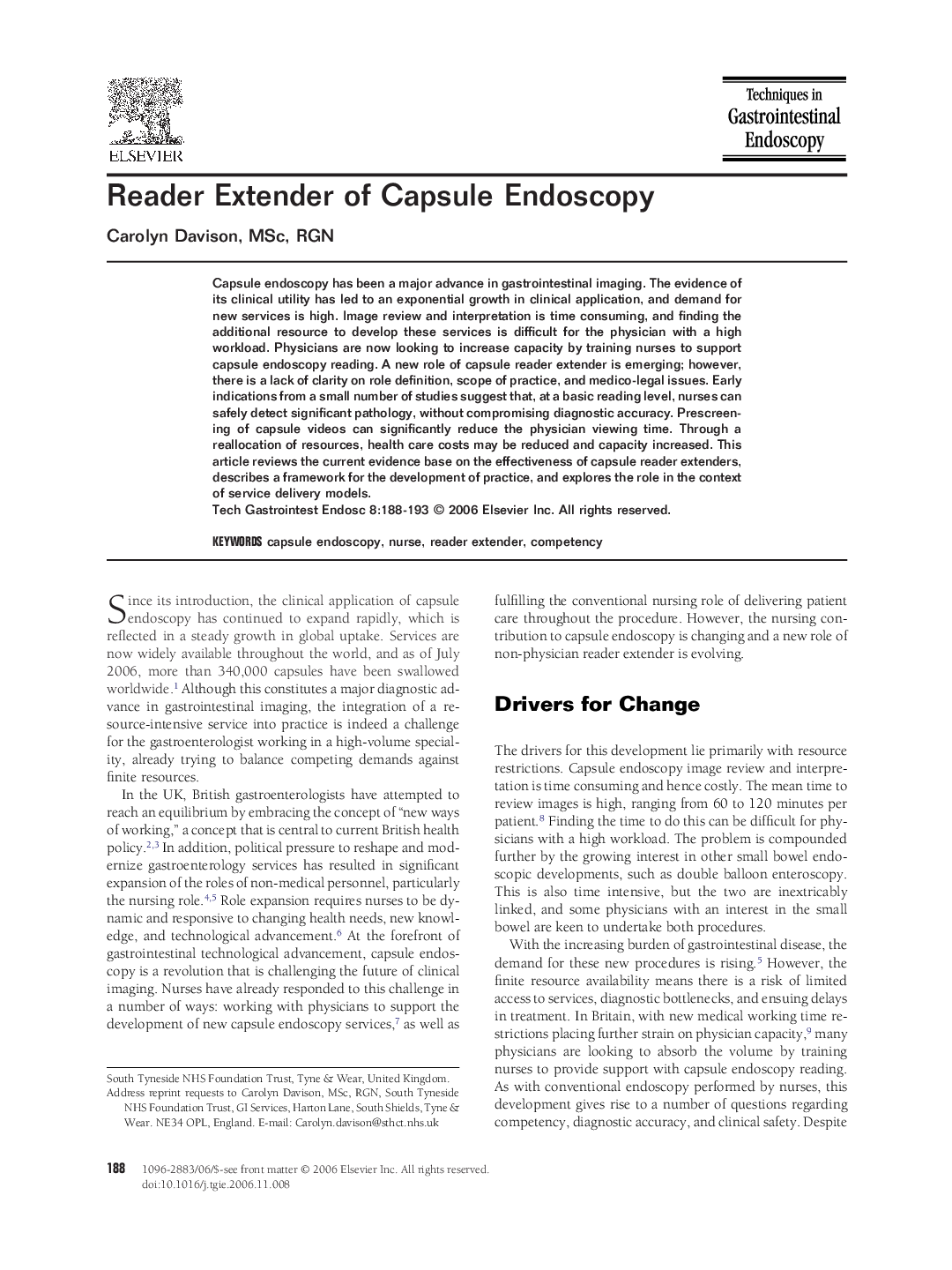| Article ID | Journal | Published Year | Pages | File Type |
|---|---|---|---|---|
| 3322923 | Techniques in Gastrointestinal Endoscopy | 2006 | 6 Pages |
Abstract
Capsule endoscopy has been a major advance in gastrointestinal imaging. The evidence of its clinical utility has led to an exponential growth in clinical application, and demand for new services is high. Image review and interpretation is time consuming, and finding the additional resource to develop these services is difficult for the physician with a high workload. Physicians are now looking to increase capacity by training nurses to support capsule endoscopy reading. A new role of capsule reader extender is emerging; however, there is a lack of clarity on role definition, scope of practice, and medico-legal issues. Early indications from a small number of studies suggest that, at a basic reading level, nurses can safely detect significant pathology, without compromising diagnostic accuracy. Prescreening of capsule videos can significantly reduce the physician viewing time. Through a reallocation of resources, health care costs may be reduced and capacity increased. This article reviews the current evidence base on the effectiveness of capsule reader extenders, describes a framework for the development of practice, and explores the role in the context of service delivery models.
Keywords
Related Topics
Health Sciences
Medicine and Dentistry
Gastroenterology
Authors
Carolyn MSc, RGN,
